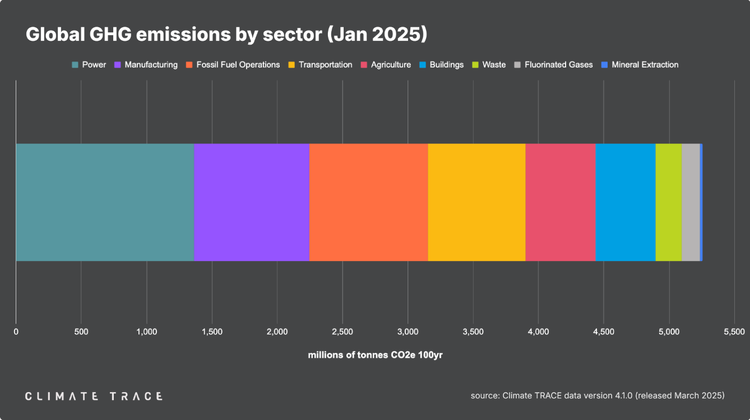Global warming outlook worsens as 2024 brought ‘minimal progress’ on climate

Climate Action Tracker (CAT) still predicts that temperatures will rise by 2.7ºC by the end of the century under current policies, but has revised its optimistic scenario upwards, from 1.8ºC to 1.9ºC.
Current Paris Agreement-aligned climate commitments, known as nationally determined contributions or NDCs, currently put us on a path to 2.6ºC warming by 2100 (up from 2.4ºC in 2022).
"We are clearly failing to bend the curve. As the world edges closer to these dangerous climate thresholds, the need for immediate, stronger action to reverse this trend becomes ever more urgent," said report lead author Sofia Gonzales-Zuniga of Climate Analytics, a CAT partner organisation.
Cautioning that the current policy warming of 2.7° was a median estimate with a 50% chance of being higher or lower, she added: “But our knowledge of the climate system tells us that there is a 33% chance of our projection being 3.0°C - or higher - and a 10% chance of being 3.6°C or higher, an absolutely catastrophic level of warming.”
The tracker now projects that emissions will peak by 2030, but at a much higher level than three years ago.
Renewable boom… and record high fossil fuel subsidies
The organisation blames the “lack of urgency on policies to cut emissions”, as well as continued government support for fossil fuel projects, for this stagnation, as fossil fuel subsidies are at an all-time high, and quadrupled between 2021 and 2022.
(Fossil fuel emissions, too, are expected to reach new heights this year.)
This is despite record-breaking growth in renewable energy and electric vehicle sales, with investments in these two technologies now double the amounts provided to fossil fuels.
“Rising emissions while renewables boom is not a paradox. In recent years fossil fuels won the race against renewables, leading to increasing emissions. But renewables surprise us each year with faster growth faster than expected, exponential growth that will soon see them crowd out fossil fuels. It allows much faster decline in emissions after 2030 than we thought only three years ago,” explained Niklas Höhne, of NewClimate Institute, another CAT partner organisation.
Estimating the ‘Trump effect’ on global emissions
The Climate Action Tracker also conducted an initial calculation of the potential impact of US President-Elect Donald Trump’s programme, known as Project 2025 and including several climate policy rollbacks – and expect it to lead to a 0.04ºC increase in global temperatures.
However, researchers warn that if the US were to permanently abandon its net zero target and influence other countries to delay action, the impact would be much worse.
"Clearly, we won't know the full impact of the US elections until President-Elect Trump takes office, but there is a clean energy momentum in the US now that will be difficult to stop. While the Trump administration will undoubtedly do its best to throw a wrecking ball into climate action, the clean energy momentum created by President Biden, being actioned across the country, is likely to continue at significant scale," said Bill Hare, CEO of Climate Analytics.
"The key issue is whether countries stick together and continue to move forward with action, a Trump rollback of US policies, as damaging as it is, can be overcome."
Read also: Trump elected president – Sustainability professionals vow to ‘charge ahead’







Member discussion